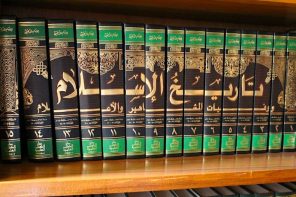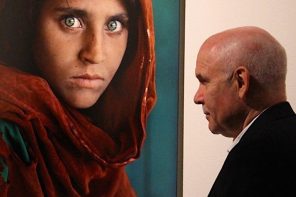It’s called Measure 755. For Oklahoma, it forbids the use of international and Shari’ah law in state courts. As of the time of writing, it has passed, winning nearly 70% of the vote. As an American Muslim, and a citizen of New York, I am amused, concerned, fascinated and, oddly, given hope. Let me go in that order.
Shari’ah is, for Muslims, the “path to the water”; the texts that normatively define a moral life and the means to God and heaven in the life to come. But Shari’ah is an ideal. Muslims, across countries and centuries, have only ever been able to interpret revelation, producing readings of Shari’ah which are never fully conclusive, because Islam recognizes no central authority to define those readings once and for all. Thus Islam’s decentralization, its many competing discourses, all pushing and pulling around a body of texts that are nearly universally agreed upon—but over whose interpretations most debates never end.
What most Americans don’t realize is that we already have interpretations of Shari’ah law in our country; or, at least, interpretations of the personal, moral, and ethical components of the law, operating off of individual choice and will. When Muslims pray, they are following interpretations of Shari’ah. Fasting in Ramadan. Giving in charity. Even a smile, the Prophet Muhammad said, is charity.
So what this means in real terms is entirely beyond me, but I am amused that Oklahomans would consider this threat enough to pass a law, to head off (and I can’t believe this is the case) the looming Islamization of the West. Apparently, it will begin in the center of the country. About all this guarantees is that the booming Halal food market may be a no-go area, and the rapid growth of Islamic finance as a global industry will just have to pass Oklahoma by.
As a discourse, Shari’ah law has become far more globally significant due to the warnings of persons like Geert Wilders and other alarmists; now, apparently, we can add the people of Oklahoma to that list. What is happening to our America? Why are we so afraid of an abstract Islam, far beyond the ability of extremists and radicals to harm us?
Travel to other places in the world, like the Persian Gulf, Turkey, China, India, Brazil, and so on and so forth, and people are hungry with ambition, eager to embrace the economic opportunities that our country’s desire for globalization enabled and sustained in the first place. Now, we are turning away; we are scared of monsters whose shadows stretch across the planet.
But let me end with a note of hope. Consider that, for most Americans, Shari’ah is only known as an inflexible and intolerant system (considering the interpretations most Americans hear about, I don’t blame them). What most people oppose when they say they fear Islamic law is not the law per se, but those draconian and inhuman interpretations of Islamic law (so, keep in mind, Rumi was an Islamic lawyer, and furthermore he was much more qualified than the Taliban could ever claim to be). Given that impression, 30% of Oklahohamans still voted “no.”
These Oklahomans didn’t want to ban international or Shari’ah law from their state courts. Because they see through the feint, the misdirection, the pointing to supposed threats in place of the actual challenges—economics, climate change, education, and infrastructure—that will weigh down on us all, regardless of creed and color. How will this end? Sometimes, it is easier to go down a road than it is to come back.




